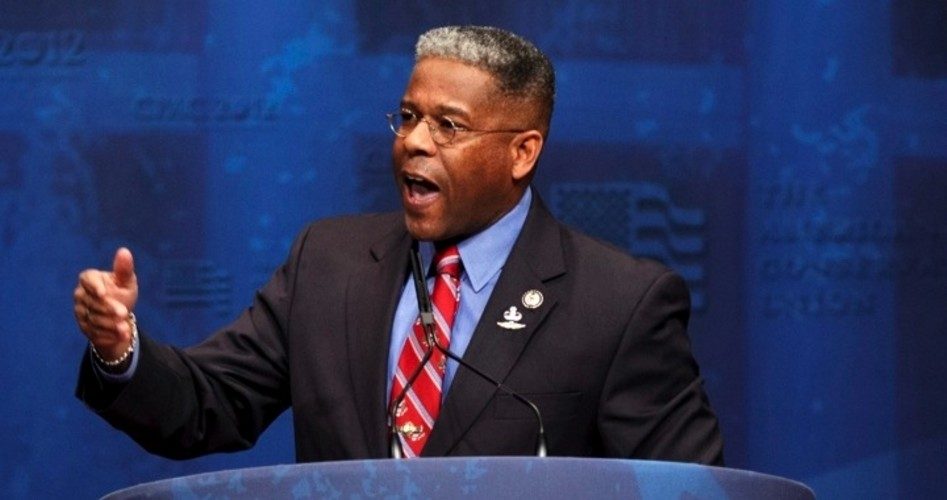
The Allen West for Congress campaign issued a press release on Nov 20 conceding defeat. The official statement addressed concerns raised during the vote counting:
While there are certainly still inaccuracies in the results, and the actions of the St. Lucie County and Palm Beach County Supervisors of Elections rightly raise questions in my mind and for many voters, after much analysis and this past weekend’s recount in St. Lucie County, our legal team does not believe there are enough over-counted, undercounted or fraudulent votes to change the outcome of the election.
Not all of Allen West’s supporters are in agreement with his legal team that the results of the election can’t be changed. The New American has been in contact with a number of Allen West’s grass-roots supporters and Tea Party members in the South Florida area. Some of them are suspicious that large numbers of voters, some of them perhaps non-citizens or non-existent people, had been registered to vote in last-minute voter registration drives in this year’s elections, not only in Allen West’s district, but across the country. They saw Allen West’s tough stand as an opportunity to get a court order making the list of voters who voted in this election immediately available. Such a list could be used to identify how many voters were legal voters, how many voter registrations had accidental inaccuracies, and how many might be fraudulent. By obtaining this list and acting on it immediately, it would be hard for anyone to explain all but a minute percentage of any phantom voters discovered to be “voters who have moved or died since the last time they voted.” This is the excuse used frequently when voter registrations are found to be invalid.
Penny-Wise and Pound Foolish?
The Allen West campaign raised an estimated $17 million to be spent on the campaign. It appears penny-wise and pound-foolish that a campaign that spent millions of dollars on campaigning would not spend a very small amount, perhaps only a few hundred dollars, to obtain a list of voters for volunteers to vet.
The plurality is currently fewer than 2,000 votes out of approximately 330,000 votes cast. Even if only one percent of the voters were found to be ineligible by post-election sampling, that would lead to an estimate of 3,300 votes that shouldn’t have been cast, an amount that exceeds the current plurality. If so, Allen West would then have grounds to ask the Congress under authority of the U.S. Constitution, Article I, Section 5, to refuse to seat either candidate until all ineligible voters were removed from the voter registration lists and a new election held. It would also have another benefit: The documents filed in Congress would certainly be made available to the public via the U.S. Government Printing Office and could be used by activists for documenting needs for electoral reform. Congress has handled disputed elections in the past. In such cases, the typical process is for both candidates to get paid their salaries and get equal access to the congressional office building while neither gets seated until Congress can either determine the winner or order a new election.
Robert K. Dornan claimed his reelection loss in 1996 by 984 votes in a large part on votes cast by ineligible voters. Dornan was unable to win his case in part because he was unable to determine citizenship of those who voted. Without hard evidence to use in court, there is no way to get a court or the U.S. Congress to overturn an election.
But Allen West’s case is different in two significant ways. Dornan waited too long and he didn’t have access to federal citizenship databases. The West campaign filed a lawsuit immediately and the Florida Secretary of State’s office announced on July 14 of this year that they have received a commitment from the U.S. Department of Homeland Security to have access to the Systematic Alien Verification for Entitlements Program (SAVE) database. The ability to connect the computers exists and citizenship information could be verified in a very short length of time, perhaps a few hours to a few days at most.
A post-election audit in this contest could have national implications if it uncovers significant illegal voting by ineligible voters, whether that be because they are non-citizens, non-existent people, or people registered multiple times. It would likely lead to similar post-election audits across the nation. Conversely, if there was only minimal illegal voting in this contest, the public has a right to verify that as well.
Allen West’s decision to concede the election without a post-election audit to check for potential illegal voting may be one of the top 10 political blunders of 2012. The people who dug deep into their pockets to donate the $17 million to his campaign deserve better.
Photo of former Rep. Allen West (R-Fla.): AP Images


